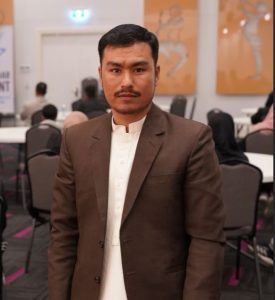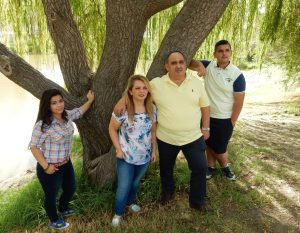106,000 new citizens voting in Victorian state election
Almost 17,000 new citizens will be voting in Australia for the first time in the 2022 Victorian state election and about 90,000 will be voting in their first state election, data from the Victorian Election Commission shows.
Many of the first time voters are migrants and refugees who have never voted before or have voted only under duress.
Now, as recently confirmed Australia citizens, they will be voting for the first time in this week’s Victorian state election.
Among them is first time voter and Afghan refugee Idress Jaffari, who never voted in his homeland and who became a citizen just five months ago.
 Mr Jaffari says, as a member of the minority Hazara ethnic group, his vote would not have had any impact anyway.
Mr Jaffari says, as a member of the minority Hazara ethnic group, his vote would not have had any impact anyway.
“I believe the system in Australia works well. Here you are able to choose your representative and have your voice heard,” Mr Jaffari said.
“And when you choose your representative, they can take your concerns to Parliament,” he said.
“Voting in Australia shows respect to the system and I feel like I have no barriers to me taking part in the election process. Personally, being able to vote makes me feel included and a full member of the society.
“In Afghanistan, if you are from a minority group, you are not heard.
“I would encourage all refugees and migrants to vote. Australia is a great place and I feel included and happy to be here,” Mr Jaffari said.
Nepali migrant Saroj Dangol says that being able to vote in the Victorian election boosted his sense of belonging as a new Australian citizen.
“I’m not really a political person but I think it is important that people exercise their right to vote and have a say in the way the country is run,” Mr Dangol said.
“Being able to vote gives me a strong sense that Australia is my home now,” he said.
“I never voted in Nepal because it would have made no difference but I think Australia has a strong democratic system that is fair and that people trust,” Mr Dangol said, who arrived in Australia 13 years ago on a student visa. His seven-year-old daughter Ariyana was born in Australia.
 Among the new citizens voting in a state election for the first time also are Osama Butti and his wife, who escaped ISIS terror attacks on the streets of Baghdad. They were the first of the extra 12,000 refugees the then Australian Prime Minister Tony Abbott announced Australia would accept in 2014.
Among the new citizens voting in a state election for the first time also are Osama Butti and his wife, who escaped ISIS terror attacks on the streets of Baghdad. They were the first of the extra 12,000 refugees the then Australian Prime Minister Tony Abbott announced Australia would accept in 2014.
“When we came to Australia I felt like we had won the lottery and getting our citizenships and being able to vote feels like we have won the lottery a second time,” Mr Butti said.
“Here in Australia you can feel democracy at work. We are free to choose whoever we want. You can see the programs and plans of each of the parties and candidates and make your choice.
“In Iraq each time you would see the same names and the same candidates, so there was really no choice.
“Becoming citizens was really important for my wife and me. We now feel like we belong somewhere and we can move on with our lives.
“On election day we will cast our votes like other Australians. This is a very good thing and a new experience for us.
“It will be a privilege and it marks our good luck in becoming a part of this wonderful country,” Mr Butti said.
Syrian refugee Rene said she was “excited” about voting in Australia for the first time.
Rene said she understood the electoral process was comfortable in participating. She said she had voted in Syria but that Australia’s system was “more accurate and credible”.
“Voting make me feel part of this community and I’m proud of that. I feel included in that I am able to practice my rights as an Australian citizen,” she said.
CEO of migrant and refugee settlement agency AMES Australia Cath Scarth said overwhelmingly, refugees and migrants relished the chance to vote and play a part in the political process.
“Refugees and migrants see the right to vote as a validation of their places in Australian society and it gives them a sense of belonging,” Ms Scarth said.
“Many, especially refugees, have come from places where they don’t have a vote or the act of voting can be extremely dangerous. So, we find most new citizens relish the opportunity to take part in the political process and take it very seriously,” she said.
Ms Scarth said part of AMES Australia’s mission was to help orientate newly arrived refugees and migrants to Australian society and part of that work was to help them understand the electoral process.
The top 15 Victorian state electorates for new voters are: 1. Kalkallo 4,584; 2. Tarneit 4,207; 3. Laverton; 3,529; 4. Werribee 3,396; 5. Point Cook 3,361; 6. Cranbourne 3,099; 7. Dandenong 3,094; 8. Berwick 3,046; 9. Koroit 2,816; 10. Narre Warren South 2,764; 11. Melbourne 2,610; 12. Melton 2,581; 13. Thomastown 2,390; 14. Greenvale 2,071; 15. Pakenham 1,956.












